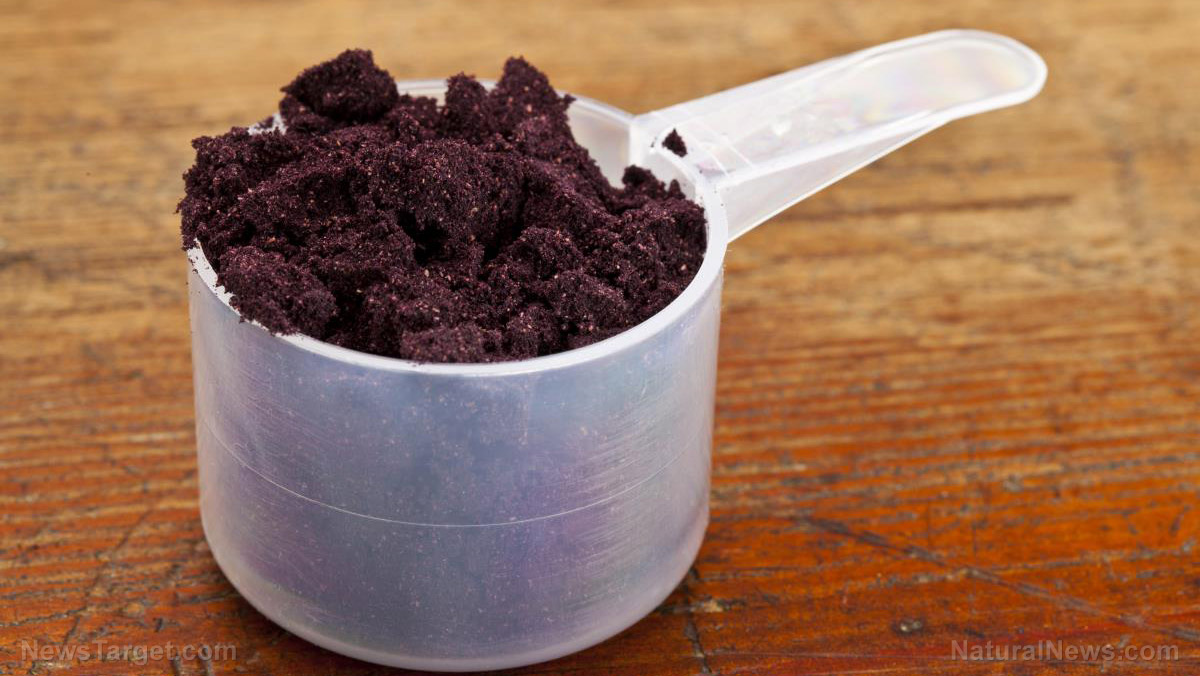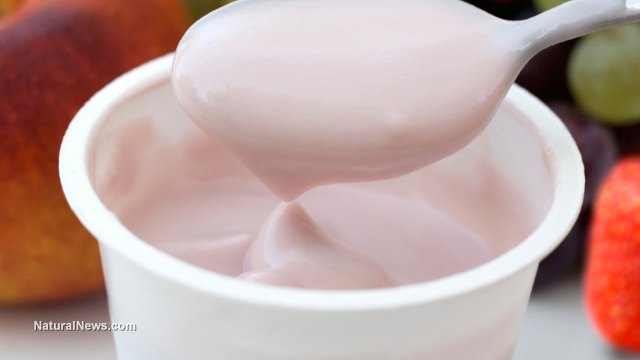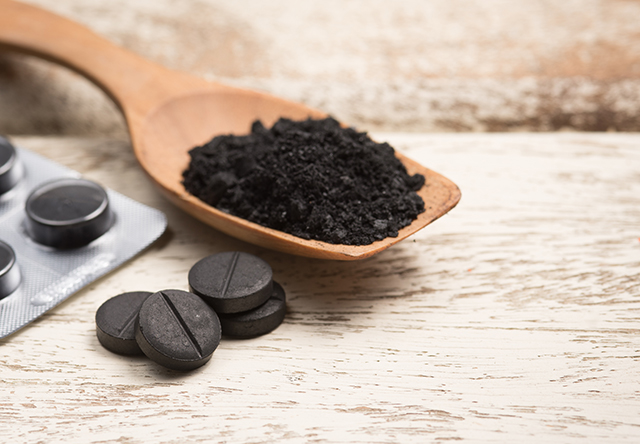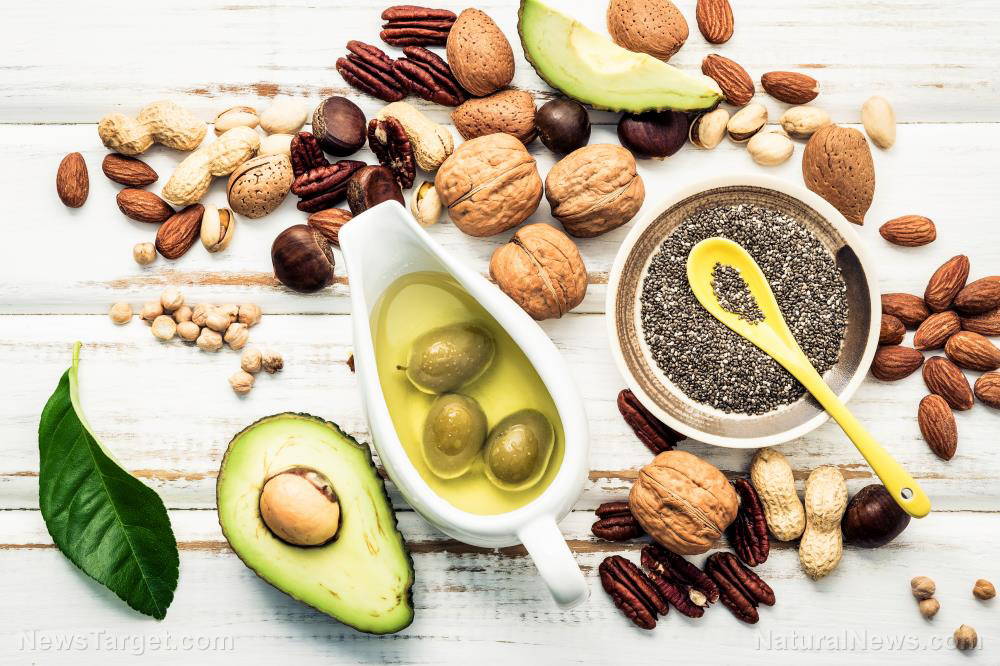5 Good reasons to include more magnesium-rich foods in your diet
07/21/2018 / By RJ Jhonson

You may not realize it, but magnesium is one of the nutrients your body needs the most. According to the Human Genome Project, there are 3,751 proteins with binding sites for this mineral, which only adds to why you need to eat food items that have an abundance of it.
Increasing your magnesium intake can provide you with a wide range of health benefits.
Lower your risk of dying from cardiovascular disease
Numerous studies have linked low magnesium levels in the body to an increased risk of developing cardiovascular disease and dying from it. It was also found that increasing your magnesium intake can be therapeutic for conditions like hypertension, arrhythmia, atherosclerosis, and dysfunctional endothelium.
One such study, published in Atherosclerosis, found that low magnesium levels double your likelihood of dying from heart disease. You will also be seven times more likely to die from all causes.
Manage diabetes and its symptoms
Type 2 diabetics, particularly those suffering from neuropathy and coronary heart disease, usually lack magnesium. This is because having higher glucose levels in your blood also increases the amount of magnesium in your urine, meaning you lose more of the nutrient every time you pee compared to people without diabetes. A study from Harvard University found that supplementing with 320 mg of magnesium for 16 weeks can improve both fasting blood sugar levels and good cholesterol (HDL).
Mitigate the risk of developing colon cancer
Several studies have found links between higher magnesium intake and a lower risk of developing colon cancer. A Chinese review revealed that the highest magnesium intake reduced colorectal cancer risk by 11 percent compared to the lowest intake. Another meta-analysis, this time from London, found that every time you increase your intake of magnesium by 100 mg, you decrease your colorectal cancer risk by 13 percent.
The power of the elements: Discover Colloidal Silver Mouthwash with quality, natural ingredients like Sangre de Drago sap, black walnut hulls, menthol crystals and more. Zero artificial sweeteners, colors or alcohol. Learn more at the Health Ranger Store and help support this news site.
Make your bones stronger
Magnesium stimulates calcitonin, a hormone that helps draw calcium from the blood and soft tissues so it can be used in the bones instead. Aside from strengthening your bones, this also lowers your risk for conditions related to having too much calcium, such as heart attack, arthritis, kidney stones, and osteoporosis. Magnesium’s effects are such that even when you decrease your daily calcium intake from the 1,200 mg recommended by the U.S. government to just 500 mg, you will still be able to increase your bone density.
Reduce symptoms of metabolic syndrome
Metabolically obese, normal-weight (MONW) individuals have a normal body mass index (BMI) of 25, but suffer from insulin resistance and hypertension, increasing their risk for both diabetes and cardiovascular disease. A Mexican study found that supplementing with magnesium helped ease both systolic and diastolic pressure, as well as improve triglyceride and blood glucose levels.
Increase your magnesium intake with the right diet
Magnesium levels tend to go down with age, so it is essential that you supply your body with this nutrient through proper diet. Here are some healthy, magnesium-rich food items:
- Legumes – Lentils, beans, and peas are packed with nutrients, including magnesium. They also contain lots of plant protein, which makes them great for people who want a good source of this nutrient which, unlike red meat, does not increase their risk for heart disease.
- Seeds – Pumpkin, chia, and flax seeds, among others, contain magnesium. They are also rich in fiber, which makes them extremely good for your heart.
- Nuts – Cashews, almonds, and Brazil nuts are rich in magnesium. Aside from having fiber, they also possess anti-inflammatory properties that make them excellent if you want a heart-friendly snack.
- Fatty fish – Salmon, halibut, mackerel, and certain fatty fish are not just packed with protein, they also contain magnesium and omega-3 fatty acids. These nutrients make them great for maintaining healthy blood vessels and cardiovascular function.
- Leafy greens – Spinach, kale, collard greens, and other leafy vegetables are among the best sources of magnesium. A single cup of spinach is enough to supply 39 percent of the recommended daily intake (RDI) for the nutrient. They also provide antioxidants that help protect your body from oxidative stress and maintain normal cellular function.
Learn more about the benefits of magnesium at Nutrients.news.
Sources include:
Tagged Under: bone density, cancer, cardiovascular diseases, colon cancer, Colorectal Cancer, diabetes, grocery, Magnesium, metabolic syndrome, minerals, nutrients, nutrition, osteoporosis, supplements



















